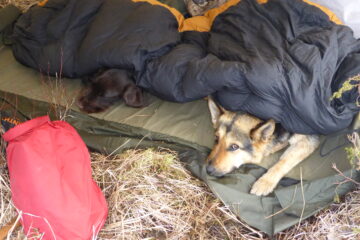The core of dog interaction is that the dog trusts you. But in case of trust most people think of the meaning regarding human interaction and that’s not what is meant here. The main reasons are because you do not talk with the dog and tell him things which could be true or false. The dog also does not know your intentions and if they are good or bad. So trust with dogs works on a more fundamental basis and to archive that it affects several different kind of aspects most people do not really associate with trust. In the following posts I will point out several aspects which build up trust or which can destroy trust. General behaviour of the human and single interactions have a very big impact if the dog trusts you or not.
The basis of everything is always the dog and his natural behaviour, not the human expectations and especially not the human thinking.
Example: Misbehaviour and coming to you.
To give a concrete example: You are always happy if the dog comes. It doesn’t matter what he did before: when the dog comes to you you’re happy and the situation is good. That is something which can be difficult to understand, especially if the dog did something fundamental wrong and you need to suppress your own emotions about that. But dog brains work different and if you are in any way upset – and dogs feel the slightest signs of emotions – it is your wrong behaviour, because the dog associates it with the coming to you.


